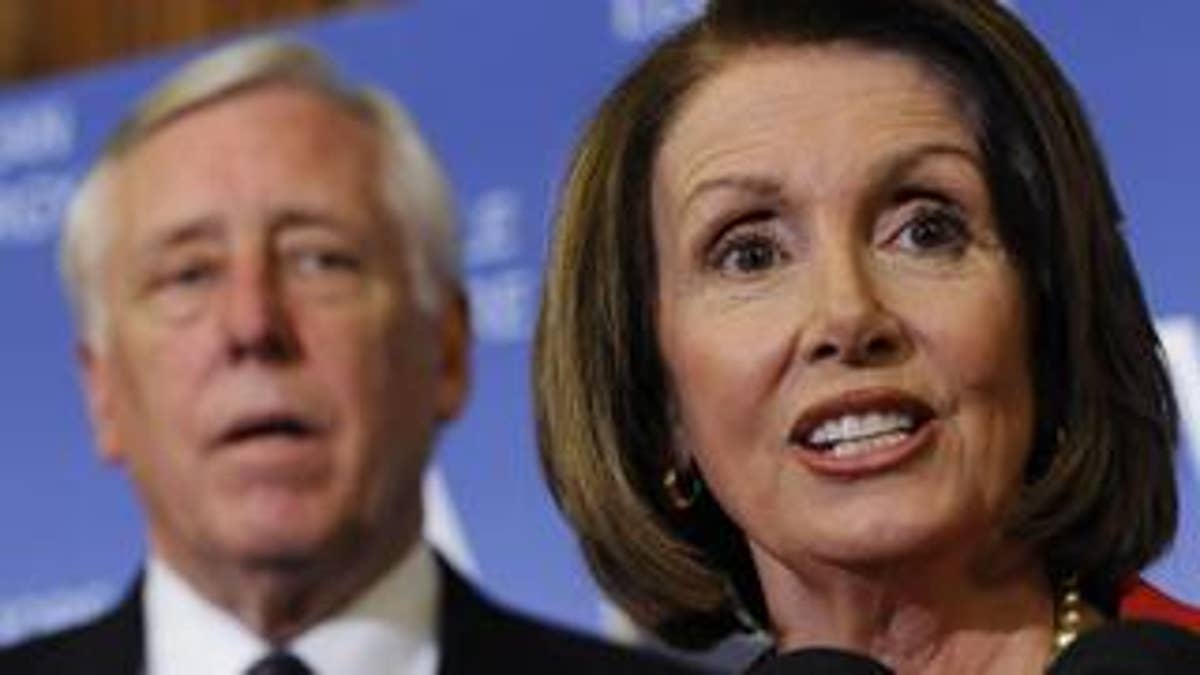
The House today approved the $3.45 trillion budget outline that will serve as the blueprint for Congress to determine spending priorities for the coming year.
The bill passed mostly along party lines with a 233 to 196 vote. House Republicans voted unanimously against the plan but were joined by 20 moderate democrats.
The House proposal calls for about $100 billion less in spending than the initial White House proposal but includes all of President Obama's major budget initiatives on energy, education and healthcare.
"This is sort of an emancipation day, this is a special day for us. It is a day that we waited for, worked for, hope for and now we will be able to pass a budget that is truly a statement of national values," said House Speaker Nancy Pelosi, D-Calif.
Republicans argued that the budget "spends too much, taxes too much and borrows too much," to pay for unecessary domestic programs and called for increased tax cuts to help Americans deal with the bad economy.
"The budget before the House makes the economy worse and will destroy more American jobs," said House Minority Leader Rep. John Boehner, R-Ohio. "If you just look at the spending in this budget, it's staggering. American families are making sacrifices. They're tightening their belt. But Washington clearly is not."
House Republican Conference Chairman Rep. Mike Pence, R-Ind., called the bill "the most fiscally irresponsible budget in American history."
The budget resolution does not have the force of law and will not be signed by the President. But once the Senate and House reconcile their two proposals, which they are expected to do later this month, the plan will serve as an overall guideline as Congressional committees write appropriations bills for next year's spending priorities.
The House plan also contains "reconciliation" language which will enable Democrats to fast-track health care and education plans without one Republican vote.
Democrats argue that it will set the government on a path to more than halve the current projected $1.7 trillion deficit down to $586 billion by 2013.
"This is a responsible budget, not just for today but for the long-term," said House Majority Leader, Rep. Steny Hoyer, D-Md., adding that the Bush administrations "fiscal irresponsibility" led to the need for major deficit spending.
Meanwhile, House Republicans offered an budget alternative that proposed spending $4.8 trillion less and borrowing $3.6 trillion less than the Democratic bill over the next 10 years.
The proposal, which would have also extended the 2001 and 2003 Bush tax cuts and rescinded most of the stimulus bill, failed by a 293 to 137 margin. Thirty-eight Republicans, mostly from swing districts, voted against their own party's budget plan.
The Republican proposal is really a hollow shell of a budget, it gives increased tax cuts to the wealthy, makes an assault on social security benefits, Medicare and Medicaid and erases the recovery package which is a source of hope," Pelosi added.
"The American people want us to find our common ground where we can but they did not send us here to split the difference. They want real change and we have come here to make a difference."





















